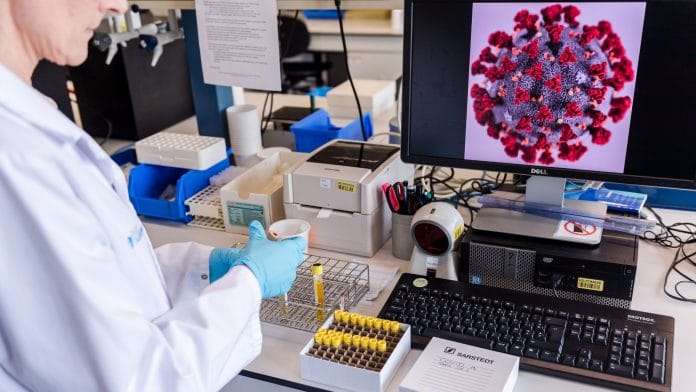New Delhi: Did you hear people around you wondering if they already had Covid-19 like symptoms way before the disease started wreaking havoc? These people might or might not have been affected by Covid-19, but their condition now has a name — Thinkihadititis.
While the world is battling one of the deadliest pandemics, this new condition is spreading rapidly among people. According to a report in the Washington Post Wednesday, ‘Thinkihadititis’ is a condition affecting people who experienced Covid-like illnesses that befell them long before coronavirus came into the picture.
It happens when bits of news and scientific findings lodge in the parts of the brain that incubate hope. Because what is better than having Covid-19 at this time when healthcare workers are overburdened? Believing that you have already had it.
The hope element
Eran Bendavid, an associate professor of medicine specialising in infectious disease who is studying Covid-19 at Stanford University, told the Post that he has been getting thousands of emails of people telling him that they surely had the disease. He said one person who wrote to him believed they caught the virus in 2018. “That, I think, is stretching it,” he said.
Thinkihadititis usually involves stretching the imagination to some degree.
From Love Island’s star Shaughna to Emmy winner Michael Imperioli, the condition has also affected some celebrities. Since some Covid-19 symptoms match with seasonal flu and common allergies, there might be more people who think they overcame the disease already.
Humans are hardwired to anticipate positive outcomes, Tali Sharot, a professor of cognitive neuroscience at the University College London, told the Post. Thinkihadititis is an outcome of that positive thinking. But it is not filled with just hope.
Also read: Netherlands moves to reopen businesses a week ahead as economies come alive across Europe
‘Sense of relief’
The condition could also give the anxiety to have passed it onto a bunch of other people. In addition to it, the World Health Organization has cautioned against the assumption that those who have already had the illness can’t get it again.
However, present data doesn’t support the imagination of people who think they have been affected in the past. According to the Centers of Disease Control and Prevention (CDC), fewer than 20 per cent Covid-19 tests are coming back positive in the US. It suggests that a large majority of people who thought they had it in the middle of the pandemic, did not actually have it.
But there is one way to know if you were infected with Covid-19 once, or if you are suffering from the above mentioned not-so-rare condition – the antibody tests.
The antibody test determines whether a patient’s blood contains antibodies, which are proteins that help to battle the infection. The presence of antibodies means the patient’s immune system has already been exposed to the virus.
However, it seems like no one wants to get cured from Thinkihadititis.
“Some of the patients are certainly disappointed,” said James Wantuck, chief medical officer of a telemedicine provider platform which offers antibody tests. “I think everyone wants to have this in their rearview mirror or feel some sense of relief.”
Also read: This is what 1918 Spanish Flu can teach India on how to tackle possible second Covid wave






